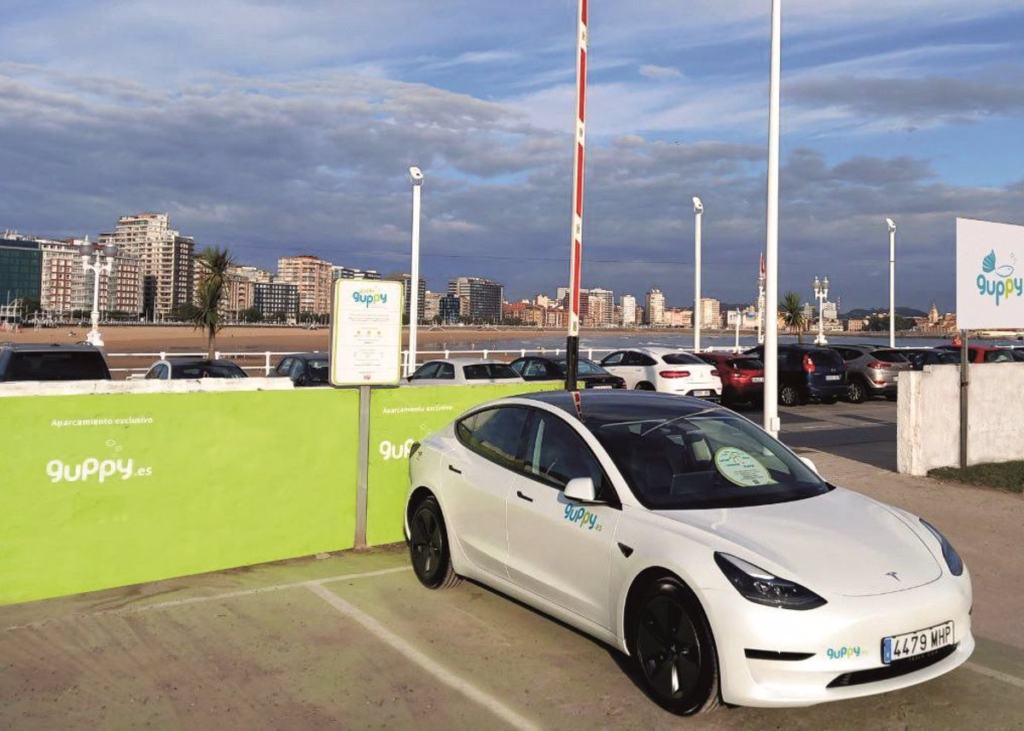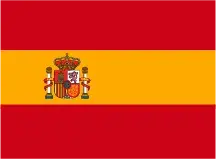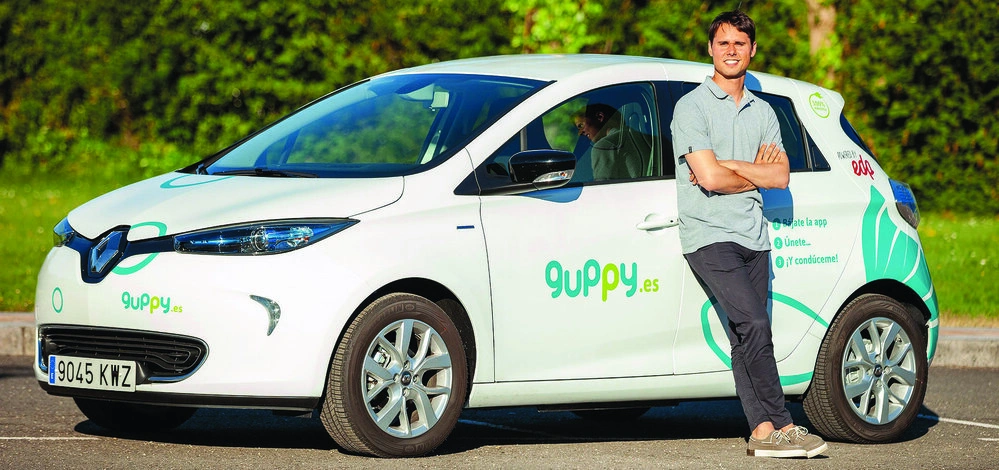“A agile, comfortable, cost-effective, and, above all, sustainable mobility,” that’s how Pablo Campos-Ansó Fernández describes Guppy, the company he founded in 2021.
The engineer anticipates changes in their business model and year-end goals to Mobility Portal Group.

Currently, the company has a total of 260 units distributed across Asturias, Cantabria, Madrid, Bilbao, and some in Valladolid and Santiago de Compostela.
But by the end of 2023, it is estimated that they “could approach the figure of 300 vehicles in the fleet.”
Their short and medium-term goal is to establish the brand as a reference in the carsharing sector.
They also aim to demonstrate that shared car usage “exists, is here to stay, and is a very useful solution for cities, not just for major capitals.”
Especially in Low Emission Zones, where they can promote and highlight the advantages of this business model.
And that’s not all.
At present, they offer in their mobile application not only the option to rent the vehicle but also the possibility to recharge it at any public charging point.
This is achieved through a partnership with TotalEnergies.
With this partnership, they aim to promote sustainable mobility and encourage the use of renewable energy in the urban and interurban mobility sector.
In this way, the energy provider provides Guppy access to more than 14,000 charging points available on its digital platform throughout Spain.
At the same time, the shared mobility company integrates its own application to expand its service to its more than 35,000 customers.
“We are the first in Spain to offer this service, and I would dare to say that we are also the first in Europe,” highlights Campos-Ansó Fernández.
The small family-owned company from Asturias operates a fleet that covers Asturias and Cantabria, offering a free-floating urban carsharing service.
They also offer their station-based service in Madrid, Bilbao, Valladolid, and Santiago de Compostela, focusing on medium and long-distance rentals.

Guppy’s second innovation is the addition of 40 units of the Tesla Model 3 to their fleet.
These vehicles offer an interurban range of 400 kilometers.
Additionally, they have a charging speed of over 200 kW, allowing the battery to be fully charged in just 20 minutes.
For this reason, they also offer the option of using Tesla Superchargers charging points.
“We are strong supporters of the Tesla Model 3 due to the excellent combination of range, speed, charging capability, and price,” the engineer points out.
Among the models that best fit the company’s offering are the Renault ZOE, Renault ZOE Neo, MG4, Dacia Spring, and Nissan Leaf.
“These vehicles have adapted very well to the demands of users and the needs of carsharing companies,” he says.
They also have a variety of vans, both small and large, which is a novelty in the shared mobility sector.
The third and final innovation is closely related to the previous one.
Currently, Guppy has a fleet of over 210 vehicles distributed in Asturias and Cantabria, primarily operating in urban areas.
However, taking advantage of the addition of vehicles with greater range, the company aims to expand its presence in Madrid and Bilbao, where they are already operational.
In the capital, they have two locations with 10 exclusive parking spaces, while in the Basque city, they have a location with five exclusive parking spaces.
In these locations, they usually have the Tesla Model 3 available, but they also have them in Asturias and Cantabria, and “soon in Santiago de Compostela and Valladolid.”
“With this, we cover the map of Spain, allowing users not only to move throughout the territory but also to start their rental in one of these cities and finish it in any other,” he explains.
Guppy’s next step is to look for expansion opportunities at the airports of Bilbao and Madrid.
What role does the Moves Singulares II program play in Guppy?
These new additions were made possible thanks to the support of the Moves Singulares II program.
This program is part of the Recovery, Transformation, and Resilience Plan, which is funded by the European Union through the Next Generation EU program.
Precisely, the company has applied for aid for projects aimed at the development and innovation of new processes or prototypes of electric vehicle models or components.
The purpose of this pilot is to advance in the conception of a new type of interchange/launching system that promotes the creation and development of a mobility service between localities with 100% electric vehicles.
The amount of the grant awarded is a total of 1,073,156.15 euros.
At this point, Campos-Ansó Fernández asserts that they have been “very agile” in execution.
“The entire project will be completed during 2023, which means that all planned actions are being carried out in less than a year,” he emphasizes.








